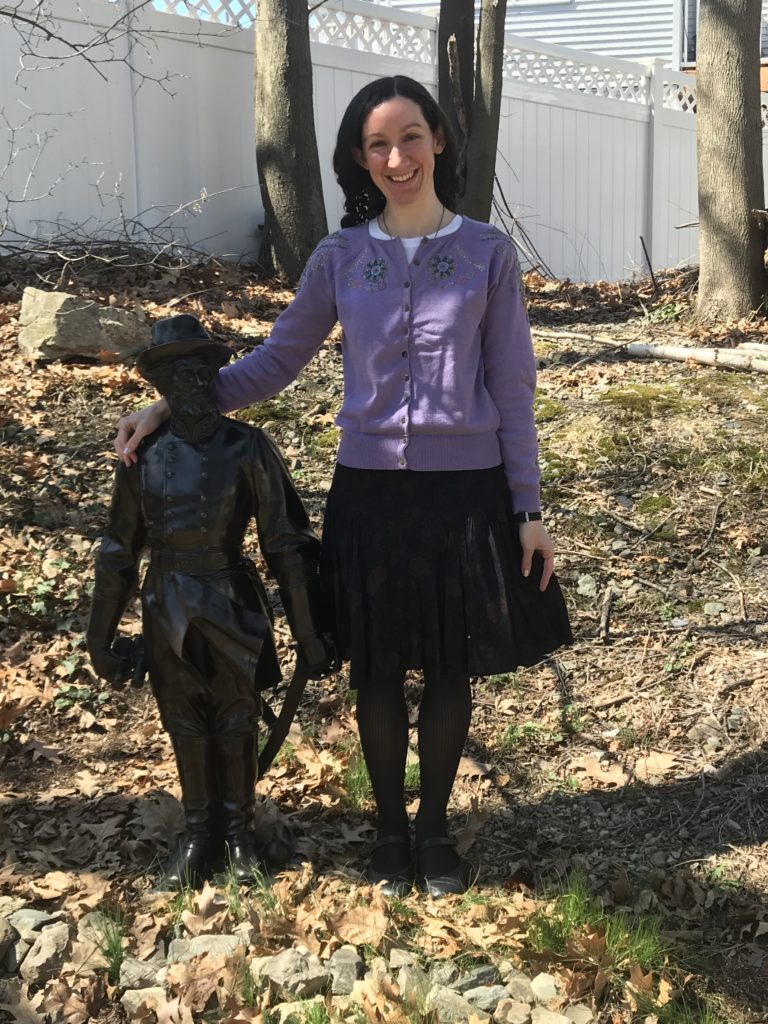Today, I feel horrible. I woke up to find little pieces of paper – the remnants of the envelopes and advertising that had come in the mail – still scattered all over the floor. My throat is horse and my head achy from screaming, again and again, at the top of my lungs. My hand is bloody and swollen from punching the granite kitchen counter. My feet and ankles are sore from stomping again and again on the floor. I am concerned that the foundation of my house might be damaged from all the stomping, and that my hands might become permanently damaged from these repeated injuries, if they are not already. This is a particularly disturbing possibility given that my job centers on picking up, lifting, and handling objects with my hands. I feel guilty and demoralized. I’m angry – angry at others, angry at myself, angry that instances like these keep happening. My body feels heavy and tired. My chest is tight, my arms and legs leaden, my stomach twisted in knots.
Yesterday, I had a meltdown because my blogging time was abruptly cut short.
I was at my parents’ house, and the plan was to watch Survivor, as well as the Bruins game. Survivor was on from 8:00 to 9:30, and the Bruins game started at 7:30. So, in addition to being able to watch a half hour of the game before Survivor, we would also be able to watch the end of the game, because it would almost certainly still be going when Survivor ended. Then, after the game ended, I would go home. My parents and I all agreed to this plan, and I was looking forward to the night of TV watching.
Personally, I never just sit and watch TV. It doesn’t work for me to sit and passively watch without anything to occupy my hands. Plus, I live with a constant backlog of topics that I want to blog about, making it foolish not to take advantage of every potential chunk of blogging time that I get. So whenever I am watching a TV show or sports game, I blog at the same time. Usually, it works well.
The thing about blogging is that it is highly momentum-dependent. It’s not the type of task that you can do a little bit of whenever you have some time. Blogging works much better when you have large, uninterrupted chunks of time, because it is mentally laborious and requires focus and concentration. Usually, once I sit down to work on a blog post, it takes me some time to get momentum going, to get into a state of flow. Once I am into this flow state, I am very productive. The writing flows effortlessly. I can keep writing and writing and not get tired at all. Because I work full time and own a home, I don’t get a lot of opportunities to get into this flow state. And when my momentum is interrupted, it’s difficult to get it back.
Yesterday, when Survivor ended and my dad changed the channel to the game, the third period was just beginning, and the Bruins were losing 3-1. My dad asked me what I wanted to do. I was surprised, because I thought everyone had agreed to the plan of watching the rest of the Bruins game after Survivor. Why would he be asking me what we should do, when the answer to that question had already been decided upon? *
Plus, for the preceding two hours, my blogging hadn’t been going smoothly. I was getting bogged down. What I thought would be a quick, easy blog post turned out to be more complicated and difficult than I had anticipated. But as Survivor was ending, I was finally making great progress. I was finally getting into a flow state, and finally starting to feel good about how the writing was going. My dad’s suggestion to leave came at the worst possible time.
My dad indicated that he was okay with staying for the rest of the game, unless the Panthers scored another goal, making the score even more lopsided. Naturally, about 30 seconds later, the Panthers scored. And so my blogging time was abruptly cut short. The momentum that had just started to get going, came to a screeching halt. **
There was something about having my blogging time cut short, without warning, that made my brain explode. It’s not just the fact that I had to leave at 9:30 as opposed to approximately 10:00. It’s the fact that I was expecting to have until 10:00, only to find out, without advance notice, hat I only had until 9:30. It’s the fact that I was counting on having until 10:00, only to find out at 9:30 that I was expected to leave immediately. I hadn’t gotten my belongings together or put my socks or shoes on, and I had been planning on getting another helping of ice cream and another helping of water. I wasn’t prepared to leave, because that’s not what I was planning on. I thought that I had an additional half hour of time left. It was another instance of the type that I’ve written about before – an instance in which things did not unfold according to the picture I had in my head. ***
And so I exploded.
I simultaneously knew that my anger was irrational, and lacked any ability whatsoever to stop it.
The rational part of my mind was fully aware that it did not make sense to be that angry at something so relatively unimportant. The rational part of my mind was even aware that if I hadn’t gotten so angry, I would have been able to open up my computer upon arriving home, resume working on the blog post, and possibly finish it, all while watching the end of the Bruins game on my own TV. In other words, if I hadn’t gotten so angry, I would have been able to avoid the very outcome (the premature end to my blogging time) that I was so angry about.
But none of this knowledge had any power to make me any less angry. Rage coursed like molten lava through my veins, overtaking my mind and body and soul. The anger was so strong that nothing could stand in its way. It took over my entire consciousness. Logic was feeble and powerless in the face of the overwhelming, uncontrollable fury. Like an erupting volcano, or an exploding bomb, once the anger started, there was no stopping it.
So I was completely consumed by anger, while simultaneously knowing that it was irrational. I feel guilty, because my dad didn’t really do anything wrong. One day my parents will be gone, and I don’t want incidents like this to be the main thing that I remember from my time with them. I feel frustrated and demoralized, because I’ve tried so hard to prevent these types of incidents from happening, yet they still keep happening. I feel conflicted, because I truly believe that autism is a gift and a superpower. I’m proud that I have it, I don’t consider it a disorder, and I don’t wish to be neurotypical. But these beliefs seem to be incompatible with the fact that my autism causes me to feel and behave in ways that I know – at the exact same time that I am feeling in behaving in these ways – are irrational.
I know that my ability, and need, to hyperfocus are part of my autism. I know that it is part of my autism to have problems with transitioning from one activity to another, and with unexpected changes to my plans. It is due to autism that I need such copious amounts of blogging time, due to autism that it causes me such distress to have that time interrupted, and due to autism that once I get into a flow state it is difficult for me to stop.
Perhaps the reason why my anger exploded so severely yesterday is because I initially tried to suppress it. I reluctantly agreed to my dad’s request to leave after the Panthers’ 4th goal, pretending that it was okay with me, even though it wasn’t. I didn’t want to inconvenience him, I didn’t want to be high-maintenance, and I didn’t want to cause a conflict. It wasn’t until I got back to my house and shut the door behind me, that the anger exploded. Perhaps I should accept my needs as an autistic person, even if they seem unreasonable to others, rather than suppressing them. Using willpower and self-discipline, forcing myself to tolerate things that upset me, might work in the short term but are not long-term solutions. Acting as if you do not have the needs that you have, does not cause you to stop having those needs. It causes the needs to go chronically unmet. And that will eventually result in an explosion.
* When my dad and I discussed this today, he explained that for him, it’s not enjoyable to watch a game when his team has no chance of winning. He would rather watch a competitive game between two teams that he doesn’t care about. For me, although I prefer the Bruins to win, the score has no impact on whether or not I want to watch the game. The important part of watching the game, for me, is watching the athletes warm up, make their entrance, go out through the tunnel, etc. and watching the video montages and the interviews before and after the game. All of these things take place regardless of what the score of the game is. And all this is, of course, in addition to the blogging that I was counting on doing while watching the game.
** “Couldn’t you just finish the blog post at home?” you might be thinking. But unfortunately, the mere process of having to pack up my laptop, put my shoes and socks and jacket and hat on, get into the car, get out of the car, check my mail, unlock my door, and unpack my stuff again, is enough to shatter my concentration and ruin my blogging momentum. More often than not, once my momentum is brought to a screeching halt by the process of leaving, it is sufficiently late that it doesn’t make sense to start up again, and so my blogging time for the day is done. And also more often than not, the following morning is filled with various tasks, and then I have to go to work, and then I get home too late to start blogging, so I don’t end up having another opportunity to blog until my next day off.
*** There were also a couple of other things weighing on my mind that may have contributed to why I became so angry. Recently, I made the decision to completely quit socializing (as radical as that may sound) but was second-guessing that decision because I heard about an all-you-can-eat ice cream event that actually sounded like it could be fun to go to with a particular group of friends. Additionally, two people have asked me to do drawings, which is flattering and awesome, but cuts into blogging time, making the blogging time while watching TV even more crucial.










